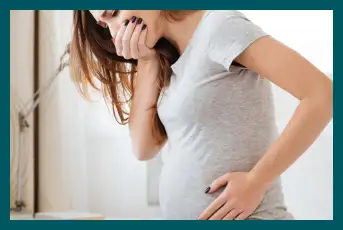How can I manage low libido during menopause?
Written by the editorial staff writer at Hola. Medically Reviewed by Dr. Ammar AL-ANI, MBChB, CCBST, AMC. Blog updated on 16 January, 2026. Originally published on 11 August, 2025.

Contents

Overview
It’s completely common to see a decrease in sexual desire during menopause. Changes in hormones significantly contribute to this, and numerous women experience it. The positive aspect is that low libido is manageable and can be treated effectively with appropriate support.
Causes low libido during menopause
Hormonal changes
As oestrogen and testosterone levels fall, the body experiences physical and emotional shifts that influence sexual desire.
Common hormonal effects include:
- Decline in oestrogen
- Drop in testosterone
- Vaginal dryness and discomfort
Emotional and lifestyle factors
Menopause can also bring changes that indirectly affect libido, such as:
Symptoms
- Diminished interest in sexual activity
- Challenges with arousal
- Vaginal dryness resulting in painful intercourse
- Decreased satisfaction during sexual experiences
- Fatigue or low mood impacting sexual desire
Medical treatments
- Hormone replacement therapy (HRT): Aids in alleviating symptoms related to decreasing oestrogen levels.
- Topical oestrogen: Directly mitigates vaginal dryness and discomfort.
- Testosterone therapy: Considered in specific instances and requires monitoring by a healthcare professional.
- Lubricants and vaginal moisturisers: Offer immediate relief during intimacy.
Treatment for anxiety, depression, or sleep disturbances can also help enhance libido.
Feeling sick and unsure why? Speak with a GP online in 15 minutes.
Lifestyle changes
- Engaging in regular exercise for improved mood, energy, and confidence
- Prioritising quality sleep
- Practising stress management techniques such as yoga or meditation
- Reducing alcohol consumption
- Maintaining a balanced diet that supports hormonal health
- Staying adequately hydrated
Improving intimacy and connection
Emotional closeness is often crucial for sexual desire during menopause. Small adjustments can make intimacy feel more accessible and enjoyable.
Consider:
- Transparent, honest discussions with your partner
- Allocating time to reconnect
- Non-sexual physical affection (massages, cuddling)
- Exploring new methods of intimacy and pleasure
When to see a doctor
Consult a GP if:
- Low libido impacts your daily routine or relationship
- Intercourse is painful
- There are significant mood swings, anxiety, or depressive symptoms
- Symptoms persist despite lifestyle adjustments
How Hola Health can help
Hola Health connects you with Australian online telehealth GPs who can help manage menopause-related low libido from the comfort of home.
Doctors can:
- Talk about your symptoms confidentially
- Suggest treatment options, including HRT (if appropriate)
- Refer you to women’s health specialists
- Support mental health matters
- Offer discreet, same-day consultations
Conclusion
Understanding changes in libido can help you respond with confidence rather than worry. Most shifts are linked to stress, lifestyle, hormones, or relationships, and many are reversible. With healthy habits, open communication, and professional help when needed, you can restore balance and support your sexual wellbeing.
FAQs
Is it common to experience low libido during menopause?
Yes. Many women encounter shifts in desire due to hormonal changes.
Will HRT enhance my sexual desire?
It frequently helps by alleviating symptoms such as hot flashes, mood fluctuations, and vaginal dryness.
Are natural remedies effective?
Some women find lifestyle changes beneficial, but it's important to consult with a GP before starting any supplements.
Does menopause consistently lead to vaginal dryness?
While many experience it, topical oestrogen or moisturisers can provide relief.
Can libido return to its normal state after menopause?
Yes, with suitable treatment and support, many women experience improvement.
Is testosterone therapy safe for females?
It can be safe in low, monitored doses under the guidance of a GP.
What should I do if low libido is impacting my relationship?
A GP, counsellor, or sex therapist can assist you and your partner in navigating this together.
15 minutes, anytime, anywhere.
What we treat
- Cough
- Nausea & vomiting
- Fever
- Hayfever
- Fatigue
- Sore throat
- Acne
- Hair loss
- Gout
- Eczema
- Rosacea
- Sunburn
- UTI
- Erectile dysfunction
- Contraception
- Morning sickness
- Morning after pill
- Prostate health
- Anxiety
- Depression
- Stress
- Grief & loss
- Antidepressants
- Premature ejaculation
- Asthma
- Blood pressure
- Blood thinners
- Diabetes
- Cholesterol
- Migraines & headaches
- Allergies
- Body ache
- Heartburn & reflux
- Sleep disorder
- Pain relief
- Gastro
Related Articles
Disclaimer
This blog is for general informational purposes only and does not indicate that Hola Health provides all treatments or preventive measures mentioned. It is not intended to be a substitute for professional medical advice. Always seek the guidance of your doctor or other qualified health professional with any questions you may have regarding your health or a medical condition. For emergencies please immediately contact 000. Any medical topics discussed are intended to educate, not to imply availability through Hola Health.
 Facebook
Facebook  X
X  Copy Link
Copy Link



